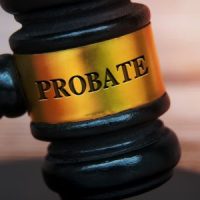How Are Non-Probate Assets Distributed in Florida

When a Florida resident dies, an estate may be opened to dispose of any probate assets they owned. Note the qualified “probate assets.” A person may have owned or controlled a substantial amount of property during their lifetime yet left no probate assets for their estate. The reason this is possible is that there are a number of ways to hold property as a nonprobate asset.
How Do You Know If Something Is a “Non-Probate” Asset?
A probate asset is any property–real, tangible, or intangible–that is owned in the sole name of the decedent at the time of their death, or which the decedent co-owned with others in a manner that did not provide for automatic succession of ownership upon death. For example, if you own stock in a corporation in your sole name, that is a probate asset, even though multiple other people may own stock in the same corporation. But if you have a life insurance policy that names your spouse as beneficiary upon your death, then that is a non-probate asset.
Some of the more common examples of non-probate assets in Florida include:
- any bank or brokerage account that has a joint account holder or lists a “payable on death” or “transfer on death” beneficiary;
- retirement accounts, such as an IRA or 401k;
- life insurance policies;
- property owned in a joint tenancy with survivorship rights;
- property subject to Florida’s homestead exemption;
- property subject to a Florida enhanced life estate deed; and
- assets transferred to a living trust before the decedent’s death.
To briefly elaborate on some of these categories:
- Married couples often own their home and other real estate as “tenants by the entirety,” which is a kind of joint tenancy. When one spouse dies, the other spouse automatically succeeds to sole ownership of the property without having to go through probate.
- If a life insurance policy, retirement account, or similar asset names the account holder’s probate estate as the beneficiary, in that case it would be considered a probate asset.
- Many living trusts are paired with a “pour-over” will, which directs any probate assets to be transferred to the trust upon the decedent’s death; a probate estate is still necessary to accomplish this transfer.
- An enhanced life estate deed–sometimes known as a “Lady Bird Deed”–basically means that you grant someone, such as a spouse, the right to continue living in your home after your death, and after they die or vacate the property, the home will then pass to a beneficiary.
Contact Florida Trust and Estate Litigation Attorney Mark R. Manceri Today
Even when it appears there are no probate assets in a potential estate, there can still be disputes and disagreements that arise between potential beneficiaries. Indeed, it is not uncommon to identify potential probate assets after a person’s death, which require the opening of a probate estate. If you are involved in such a matter and need legal advice or representation from a qualified Pompano Beach probate vs. non-probate assets lawyer, contact Mark R. Manceri, P.A., today to schedule a consultation.

 Mark R. Manceri, P.A. is a boutique law firm that specializes in Estate, Trust and Guardianship litigation. These matters include Will and Trust contests involving lack of capacity, undue influence, forgery, improper execution and tortious interference...
Mark R. Manceri, P.A. is a boutique law firm that specializes in Estate, Trust and Guardianship litigation. These matters include Will and Trust contests involving lack of capacity, undue influence, forgery, improper execution and tortious interference...